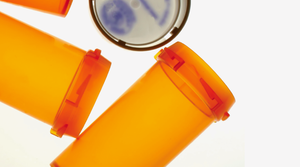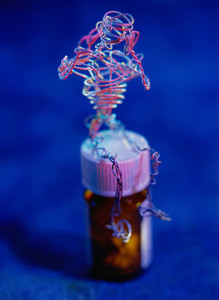Out-of-pocket expenses decline in US
Patients with insurance spent US$1.8 billion less on out-of-pocket expenses for medicines in 2011 compared to 2010. In 2011 patient’s out-of-pocket expenses totalled US$49 billion compared to US$50.8 billion in 2010.
The average co-payment also declined, especially for seniors participating in the Medicare Part D program. The average co-payment for unbranded generics was US$5.63 and US$10.34 for Medicare Part D and other insured patients respectively. This compares to brand-name medicine prices of US$37.61 and US$40.35 respectively. In fact, in 2011, more than 75% of medicines carried a co-payment of US$10 or less.
Source: IMS Institute
Hospira’s patent on dexmedetomidine upheld, delaying generics until 2013
Sandoz (part of Swiss pharma giant Novartis) is infringing a US patent licensed by Hospira for the IV sedative Precedex (dexmedetomidine), according to a decision by a federal judge in New Jersey, USA.
US District Judge Mary L Cooper found that ‘Hospira’s patent is valid and enforceable’, although ‘another Hospira patent in the lawsuit is invalid because the purported invention would be obvious to an expert’. The Judge’s ruling means that Sandoz cannot introduce its planned generic version of the drug until the infringed patent expires in 2013.
Source: Bloomberg
Pfizer and Mylan settle EpiPen dispute with Teva
Pfizer and Mylan announced on 26 April 2012 that Meridian Medical Technologies, a Pfizer subsidiary, had settled a patent-infringement litigation with Teva over a device (generic epinephrine auto-injector) used to inject epinephrine during potentially fatal allergic reactions.
According to the terms of the settlement, Teva may launch a generic epinephrine auto-injector on 22 June 2015 or earlier under certain circumstances, subject to approval of its Abbreviated New Drug Application from FDA. Teva does not yet have tentative approval from FDA for its epinephrine auto-injector.
Meridian manufactures the EpiPen Auto-Injector and Mylan Specialty markets and distributes the product in the US.
Source: Mylan
FDA approves generics for ibandronate sodium and nevirapine
FDA announced on 3 May 2012 that it had approved generics for ibandronate sodium and nevirapine from India-based generics manufacturers Dr Reddy’s Laboratories and Cipla respectively.
The ibandronate sodium tablets are a generic version of Swiss pharma giant Roche’s osteoporosis treatment Boniva. The nevirapine tablets are a generic version of German drugmaker Boehringer Ingelheim’s AIDS treatment Viramun
Source: Reuters
Bayer sues Watson over Staxyn patent
Bayer Pharma AG (Bayer) is suing generics drugmaker Watson Pharmaceuticals (Watson) for allegedly infringing two US patents for Staxyn (vardenafil).
Germany-based Bayer contends that US-based Watson is planning to market a copy of Staxyn, a minty preparation that dissolves in the mouth, before the patent protections expire.
Bayer said in a complaint filed on 25 April 2012 with a federal court in Wilmington, Delaware, USA, that ‘Watson has acted with full knowledge’ of the patents ‘without a reasonable basis for believing that it would not be liable for infringing’.
Staxyn was approved in the US only in 2010 and is used for the treatment of impotence (erectile dysfunction).
Source: Bloomberg
Improved delivery techniques way forward for generics
Ezra Innovations uses a unique drug design licensed from the University of Arkansas to improve the consistency with which a drug is released from pills over time. The company applies that technology to generics so they can be taken less often or with better patient compliance.
The company has tested over 20 different drugs with its proprietary extended-release drug delivery technology, all of which have difficult formulations. Their lead targets selling over US$2 billion in branded sales.
Although Ezra Innovations believes it may gain a competitive edge in fierce technology competition, a 2009 report from Espicom tags alternate drug delivery technologies is a popular route for the generics industry in gaining a competitive edge and identifies at least 13 companies as active competitors in the field.
Source: Medcity News
Mylan wins in Doryx patent infringement suit
Mylan announced on 30 April 2012 that it had launched doxycycline hyclate delayed-release tablets following a favourable decision by the US District Court for the District of New Jersey in a patent infringement lawsuit brought by Warner Chilcott. The Court found that Mylan’s product does not infringe on the subject patent.
The 150 mg tablets are a generic version of Mayne Pharma’s antibiotic Doryx (marketed by Warner Chilcott), which had US sales of approximately US$264.1 million for 2011, according to IMS Health.
Source: Mylan
 0
0










Post your comment